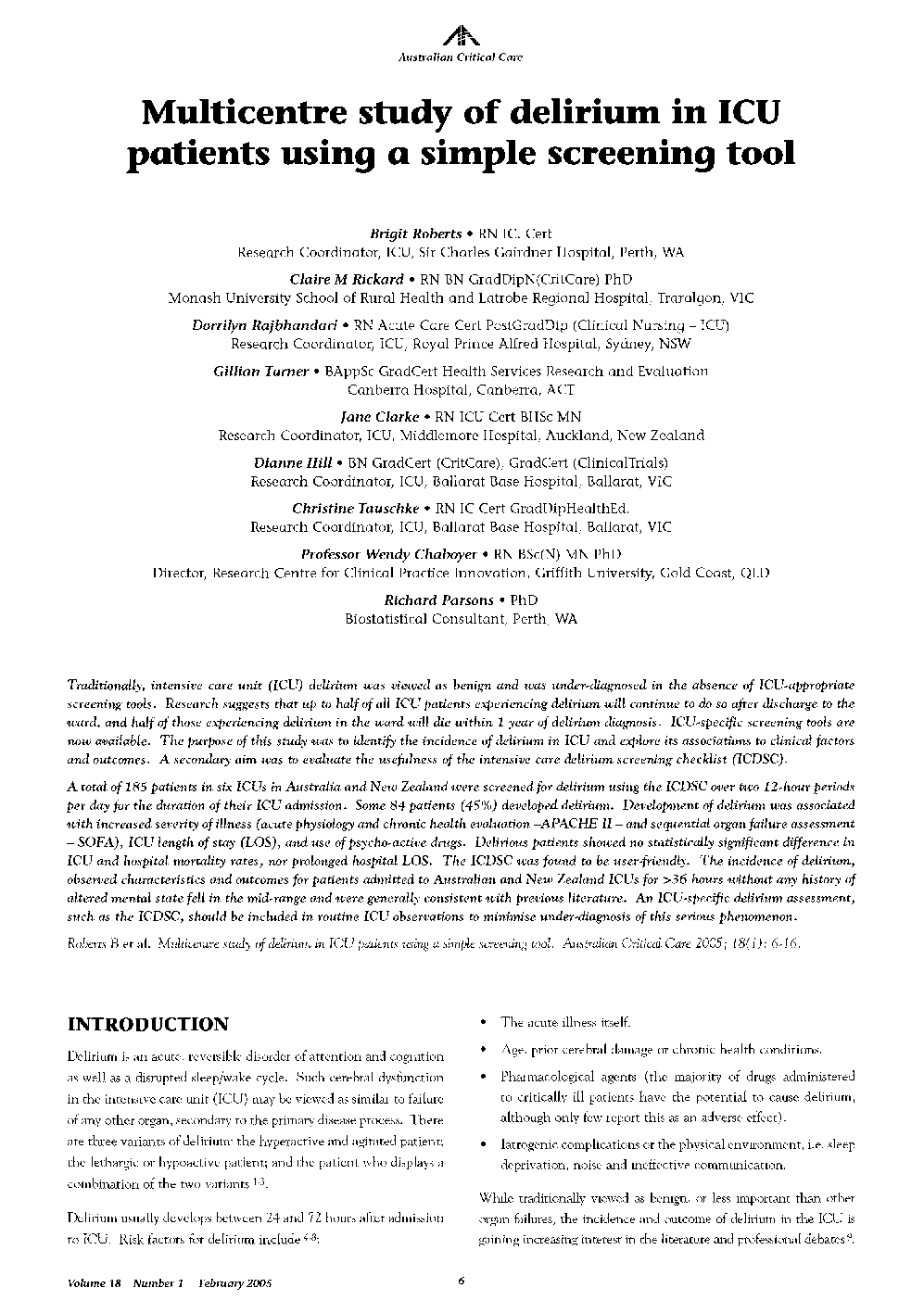| Article ID | Journal | Published Year | Pages | File Type |
|---|---|---|---|---|
| 9040570 | Australian Critical Care | 2005 | 8 Pages |
Abstract
A total of 185 patients in six ICUs in Australia and New Zealand were screened for delirium using the ICDSC over two 12-hour periods per day for the duration of their ICU admission. Some 84 patients (45%) developed delirium. Development of delirium was associated with increased severity of illness (acute physiology and chronic health evaluation - APACHE II - and sequential organ failure assessment - SOFA), ICU length of stay (LOS), and use of psycho-active drugs. Delirious patients showed no statistically significant difference in ICU and hospital mortality rates, nor prolonged hospital LOS. The ICDSC was found to be user-friendly. The incidence of delirium, observed characteristics and outcomes for patients admitted to Australian and New Zealand ICUs for >36 hours without any history of altered mental state fell in the mid-range and were generally consistent with previous literature. An ICU-specific delirium assessment, such as the ICDSC, should be included in routine ICU observations to minimise under-diagnosis of this serious phenomenon.
Related Topics
Health Sciences
Medicine and Dentistry
Critical Care and Intensive Care Medicine
Authors
RN IC. Cert (Research Coordinator), RN BN GradDipN(CritCare) PhD Rickard, RN Acute Care Cert PostGradDip (Clinical Nursing - ICU) (Research Coordinator), BAppSc GradCert Health Services Research and Evaluation Turner,
